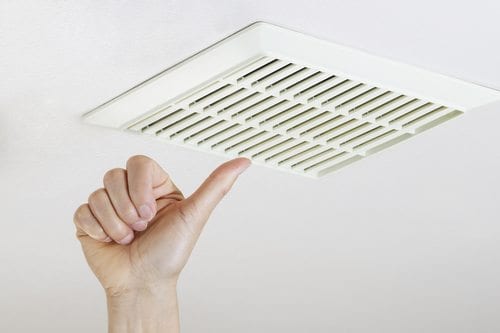Blog
Closing Air Vents: Airflow and Energy-Saving Myths Busted

Many homeowners have been led to believe that closing air vents saves energy and makes the home more comfortable. Unfortunately, this “tip” is anything but — closing air vents does not save energy and actually does more harm than good. Learn the truth behind common myths regarding your home’s air vents from the best HVAC contractors in the Cincinnati and Northern Kentucky area.
Does Closing Vents Redirect Air?
Rooms throughout your home have vents, which allow conditioned air from your heating system and air conditioner system to enter the space. It’s a common misconception that closing vents in one area of your home redirects airflow to other areas. For example, closing vents in an unused area of the home sends more hot or cold air to areas in use.
Closing vents does redirect air — just not to where you want. When registers are closed, air backs up into the home’s ductwork, which increases pressure within. This pressure is exerted onto ductwork, which leads to duct leaks. The air you wanted to redirect is lost through duct leaks into unconditioned areas. Closing supply vents increases air pressure inside the ducts, forcing an even greater volume of heated air out through leaks into unconditioned zones of the house. To compensate for lost heating, the furnace runs longer cycles, increasing heating costs.
Does Closing Vents Save Energy?
It has been said that closing air vents saves energy in a home, but this is not the case — closing vents can actually increase energy consumption and costs. HVAC systems are designed to heat homes based on their size, and your equipment does not know you have closed vents. Closing air vents forces your heating system to overwork to heat the space it is designed for, which increases energy consumption.
Does Closing Vents in Unused Rooms Help Airflow?
Vital furnace components require a minimum return airflow volume to maintain a safe internal temperature. Closing supply air vents in rooms reduces return airflow, potentially overheating the heat exchanger — the most expensive component in the system — and causing cracks to develop. A defective heat exchanger can even pose a safety hazard due to carbon monoxide infiltration.
In cooling systems, closed vents lead to frozen coils, which causes damage to the system’s compressor. In both heating and air conditioner equipment, closing air vents causes damage to system components, which increases your costs in the form of system repairs and early replacement.
Does Closing Vents Help Other Areas of the House?
Closing air vents in one area of the home does not help other rooms receive better airflow. Instead, conditioned air is lost through duct leaks and the other areas of your home do not receive additional heating or cooling.
Cold rooms in a warm house act like a heat sink. It’s a fact of physics: Heat is naturally drawn out of warm areas into colder zones. Keeping one or more rooms unheated inside an otherwise warm house tends to suck heat energy out of the heated areas and into the cold rooms through interior walls that aren't insulated. The furnace cycles on and off more frequently to compensate for the heat loss, actually raising energy costs and diminishing indoor comfort. What you thought was helping improve home comfort actually detracts from it.
Should I Partially Close Vents?
While you should never fully close air vents, you may increase energy savings by partially closing one or two outlets in your home that are farthest away from your furnace. Partially closed vents still allow air to flow properly through the HVAC system, which prevents overheating and added pressure to the ductwork.
Should I Close Basement Vents?
If you have outlets in your finished basement, you do not want to close these. Your home's HVAC system is designed to handle the climate control needs of this space — if you close vents in these areas, it has the same negative effects as closing vents in aboveground areas of the home.
Save Energy the Right Way — With Apollo Home
Schedule Thermostat & HVAC Zoning Services
To control the flow of air and improve energy efficiency, the best solution is to schedule smart/Wi-Fi thermostat installation and consider a zoned heating and cooling system. Central HVAC systems may be able to be retrofit with zoning. Dampers are used within the ducts to restrict airflow in certain areas without negatively affecting the HVAC equipment.
Apollo Home helps our customers in the Cincinnati area save money on their energy bills and create a more comfortable and energy-efficient home environment using appropriate equipment and settings. If you want better control of heating and cooling throughout your home, book an appointment with us today.



